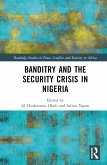This book examines how de-radicalisation programmes have been portrayed in the media and details the role of public relations (PR) strategies employed by such programmes and Countering Violent Extremism (CVE) to create positive coverage of their work.
CVE and de-radicalisation programmes have seen a significant rise in recent years and are now cornerstones of many countries' counterterrorism strategies. Despite the increased importance of these tools to counter violent radicalisation leading to terrorism, they remain controversial and sometimes receive fierce public criticism and opposition. This work looks at how CVE and de-radicalisation programs are able to influence a country's discourse on de-radicalisation, and how far governmental programs differ from non-governmental initiatives in terms of their PR strategies. The book also provides a theoretical basis of how the discourse on CVE is constructed in the media. As major case studies, this book examines the UnitedKingdom, Germany and Nigeria. For these countries, the authors have gathered and assessed roughly 3,000 newspaper articles on de-radicalisation programmes over a decade to provide an empirical base.
This book will be of much interest to students of countering violent extremism, de-radicalisation, and terrorism studies.
CVE and de-radicalisation programmes have seen a significant rise in recent years and are now cornerstones of many countries' counterterrorism strategies. Despite the increased importance of these tools to counter violent radicalisation leading to terrorism, they remain controversial and sometimes receive fierce public criticism and opposition. This work looks at how CVE and de-radicalisation programs are able to influence a country's discourse on de-radicalisation, and how far governmental programs differ from non-governmental initiatives in terms of their PR strategies. The book also provides a theoretical basis of how the discourse on CVE is constructed in the media. As major case studies, this book examines the UnitedKingdom, Germany and Nigeria. For these countries, the authors have gathered and assessed roughly 3,000 newspaper articles on de-radicalisation programmes over a decade to provide an empirical base.
This book will be of much interest to students of countering violent extremism, de-radicalisation, and terrorism studies.








